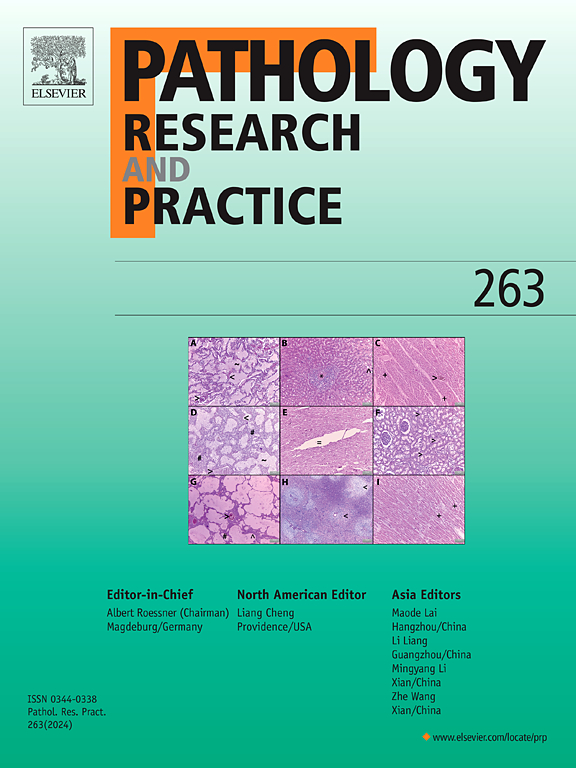Identification of the crucial roles of BAXhigh NK cells in human derived mesenchymal stem cell therapy for chronic heart failure patients
IF 2.9
4区 医学
Q2 PATHOLOGY
引用次数: 0
Abstract
Mesenchymal stem cells (MSCs) have demonstrated significant potential in heart failure (HF) treatment, but the exact mechanisms are still not fully understood. This research utilized single-cell RNA sequencing to examine alterations in peripheral blood mononuclear cells from heart failure patients pre- and post-MSC therapy. Moreover, we utilized Mendelian randomization (MR) analysis to identify causal genes linked to HF. Specifically, through scRNA-seq, we observed a progressive increase in Natural Killer (NK) cells within peripheral blood mononuclear cells (PBMCs) following MSC treatment. Furthermore, MR analysis identified the differentially expressed gene (DEG) BAX as a potential target gene for HF. Notably, the expression of BAX was significantly downregulated after MSC treatment, suggesting its potential as a therapeutic response biomarker. Cell-cell communication analysis revealed that BAXhigh NK cells displayed reduced cell-cell communication and increased apoptotic activity. Enrichment analysis indicated an association between BAXhigh NK cells and the “coagulant” pathway. Taken together, our findings suggest that BAX may contribute to the pathogenesis of HF by promoting coagulation and apoptotic pathways. In contrast, MSCs appear to suppress BAX expression, thereby inhibiting these pathways. MSC treatment increases the proportion of NK cells and reduces BAXhigh NK cells, ultimately improving NK cell function, and ameliorating HF.
求助全文
约1分钟内获得全文
求助全文
来源期刊
CiteScore
5.00
自引率
3.60%
发文量
405
审稿时长
24 days
期刊介绍:
Pathology, Research and Practice provides accessible coverage of the most recent developments across the entire field of pathology: Reviews focus on recent progress in pathology, while Comments look at interesting current problems and at hypotheses for future developments in pathology. Original Papers present novel findings on all aspects of general, anatomic and molecular pathology. Rapid Communications inform readers on preliminary findings that may be relevant for further studies and need to be communicated quickly. Teaching Cases look at new aspects or special diagnostic problems of diseases and at case reports relevant for the pathologist''s practice.

 求助内容:
求助内容: 应助结果提醒方式:
应助结果提醒方式:


